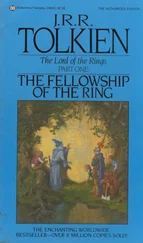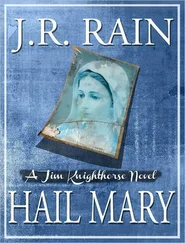Helge Fauskanger - J.R.R. Tolkien’s Lord’s prayer and Hail Mary in Quenya - Syntactical and Etymological Analysis
Здесь есть возможность читать онлайн «Helge Fauskanger - J.R.R. Tolkien’s Lord’s prayer and Hail Mary in Quenya - Syntactical and Etymological Analysis» весь текст электронной книги совершенно бесплатно (целиком полную версию без сокращений). В некоторых случаях можно слушать аудио, скачать через торрент в формате fb2 и присутствует краткое содержание. Жанр: Языкознание, на английском языке. Описание произведения, (предисловие) а так же отзывы посетителей доступны на портале библиотеки ЛибКат.
- Название:J.R.R. Tolkien’s Lord’s prayer and Hail Mary in Quenya: Syntactical and Etymological Analysis
- Автор:
- Жанр:
- Год:неизвестен
- ISBN:нет данных
- Рейтинг книги:5 / 5. Голосов: 1
-
Избранное:Добавить в избранное
- Отзывы:
-
Ваша оценка:
- 100
- 1
- 2
- 3
- 4
- 5
J.R.R. Tolkien’s Lord’s prayer and Hail Mary in Quenya: Syntactical and Etymological Analysis: краткое содержание, описание и аннотация
Предлагаем к чтению аннотацию, описание, краткое содержание или предисловие (зависит от того, что написал сам автор книги «J.R.R. Tolkien’s Lord’s prayer and Hail Mary in Quenya: Syntactical and Etymological Analysis»). Если вы не нашли необходимую информацию о книге — напишите в комментариях, мы постараемся отыскать её.
J.R.R. Tolkien’s Lord’s prayer and Hail Mary in Quenya: Syntactical and Etymological Analysis — читать онлайн бесплатно полную книгу (весь текст) целиком
Ниже представлен текст книги, разбитый по страницам. Система сохранения места последней прочитанной страницы, позволяет с удобством читать онлайн бесплатно книгу «J.R.R. Tolkien’s Lord’s prayer and Hail Mary in Quenya: Syntactical and Etymological Analysis», без необходимости каждый раз заново искать на чём Вы остановились. Поставьте закладку, и сможете в любой момент перейти на страницу, на которой закончили чтение.
Интервал:
Закладка:
úcaremmar, plural noun with pronominal ending: our sins, our misdeeds . The pronominal ending - mma, here followed by the plural ending - r, denotes exclusive our (see Átaremma). Removing the endings (pronominal and plural), we are left with úcare-. It cannot be definitely determined whether the noun sin should be úcare( úcarë) or just # úcar: The ein úcare- could be part of the word proper, but it could also be merely a connecting vowel inserted to avoid an impossible consonant cluster, just as in Átaremma. Indirect evidence may support # úcareas the independent form: In MC:222, we have elenilloras the plural ablative of elen star . Notice the ithat is inserted between elenand the case ending - llor(for plural ablative): It seems that the case ending is added to the normal, "nominative" plural eleni stars (attested by itself in Namárië). So if a noun ending in a consonant is to receive an ending that would produce an impossible consonant cluster, and the whole form is to be plural, one does not use the normal connecting vowel e(as in Átaremma, or Elendilennain PM:401). Instead one may construct the simplest plural form of the noun, in - i, and use this plural ending as a connecting vowel before adding the case ending. If the noun sin were # úcar, the same procedure could have been used here: plural * úcari, to which the pronominal ending would be added, producing * úcarimmar(with double plural marking, iand r, just as in elen i llo r ). The fact that we do not here see * úcarimmar, but úcaremmar, may then suggest that no extra connecting vowel is needed – sc. that the naked noun sin is not # úcarending in a consonant, but # úcare. The ending - ewould represent primitive *- ê, known to be an abstract ending (see esselya). As for the elements # úcareis made up of, see the verb úcarerbelow.
úcarerplural verb sin , trespass . The verb has the plural ending - rto agree with its plural subject (" those who sin/trespass against us"). This form includes the verb car- do , concerning which see care; as discussed in that entry, we would rather expect the plural aorist to be * úcariraccording to the system Tolkien used in both earlier and later sources. Anyhow, this verb is obviously related to the noun # úcare sin , misdeed discussed above. The prefix ú- sometimes functions as a negation not -, un -, in -, but the Etymologies adds that it is "usually with bad sense" (LR:396 s.v. ugu-, umu-). Here the "bad sense" is dominant; in this case, the prefix does not indicate negation, but something wrong . The noun # ú-careis quite literally mis-deed , and # úcar- is the corresponding verb: to commit a misdeed , to do wrong , to sin .
úcarindor, plural noun sinners , evildoers ; singular # úcarindo. This is an agental from of the verb úcar- discussed above. This word provides our third attestation of the agental ending - indo, with the same meaning as English - er . The Etymologies has melindo lover , a derivative from the verb mel- love (LR:372 s.v. mel-). In LotR we find the word # colindo bearer , attested as a compounded plural: as part of the Cormallen Praise, Frodo and Sam were hailed as the Cormacolindoror Ring-bearers . (The underlying verb # col-, # kol- bear has never been attested by itself, but cf. MR:385 stating that kollameans borne or worn .) In the Etymologies , - indois suggested to be a specifically masculine agental ending, since masc. melindois contrasted with fem. melisseas the word for lover (and of course, both of the Cormacolindoror Ring-bearers were male). However, in the context of this prayer, the plural úcarindoris probably not intended to carry any implications of gender.
ulcullonoun in ablative, from evil (or conceivably from [the] evil one , as discussed above). This is the sole occurrence of the ablative ending - llo from in this text, but it is well attested elsewhere (Namárië, MC:221-222, Plotz Letter). Little can be said about the origin of this ending; it is tempting to assume that the final - ois somehow related to ho from , the origin of the Quenya genitive ending (see - o). Unlike the case ending, the noun # ulcu evil is not previously attested, though it is obviously related to the adjective ulca bad , wicked , wrong (QL:97) [28] Interestingly, it now turns out that some earlier versions of the prayer actually had ulcallo instead of ulcullo .
. Though not found in the Etymologies , this early "Qenya" adjective was also valid in later Quenya; it occurs as part of a compound in a LotR manuscript: henulka evil-eyed . (SD:68 – this is part of Treebeard’s denunciation of the Orcs; in the published LotR this Quenya word is not included, though the Ent still calls the Orcs "evil-eyed".) Some very early ideas about the derivation of ulcathat are set out in QL:97 are probably best ignored within the context of later Quenya. In the later period of Tolkien’s conception, the adjective ulcaand the noun # ulcumust probably be derived from a stem *uluk- (or conceivably *guluk- since primitive initial g- was lost without trace in Quenya, but by opting for *uluk- we allow for the possibility that the stem ulug- in LR:396 is a variant of it; the latter stem is not defined but yields words for such "evil" concepts as hideous , horrible , monster ). The adjective ulcawould then descend from primitive * ulukâor * ulkâ, sc. this stem with the adjectival ending - â(WJ:382). The noun # ulcuwould represent * ulukû: two-syllable stems sometimes form nouns by reduplicating the stem-vowel a third time, as a final vowel, but in that position it is long. Cf. such primitive words as galadâ tree (LR:357 s.v. galad-) or kyelepê silver (Letters:426, cf. LR:367 s.v. kyelep-). – By another theory, the primitive form should rather be * ulku, which by itself would produce Q * ulco: Final short - uin the primitive language had become - oin Quenya (cf. primitive tundu hill > Q tundo, LR:395 s.v. tun-). This * ulcowould then appear as # ulcu- only before endings, hence ablative ulcullo, since the original - ubecame - oonly when final . Yet this seems to be a less probable theory. The change of earlier final short - uto - oparallels the change of earlier short - ito - e. From examples like úcarerinstead of * úcarirwe have already argued that around 1950, Tolkien was in a "phase" where he carried through the changed quality of the short final vowels everywhere , even where the vowels are not final because some ending follows. He may have intended that the vowels were changed in all positions by analogy with the simplex forms, where the "final" vowel really was final and did change for phonological reasons. So if he had imagined a development * ulku> Q * ulco, he would probably have used * ulcolloas the ablative form as well. When he wrote ulculloinstead, this may indicate that he intended the nominative to be simply # ulcu [29] I think my reasoning as such was sound, but according to VT43:24, the simplex may after all be ulco with a stem-form ulcu -. At least there is one version of the prayer that had va ulco instead of ulcullo , this va apparently being a preposition "from" that was used instead of the ablative ending - llo .
. – If # ulcudoes not mean evil as an abstract, but rather (the) evil one , the final - umay not just be the stem-vowel reduplicated. Rather it would be the same masculine/animate ending as in Héru, q.v. Then # ulcucould be derived from the adjective ulca evil , falling into an established Quenya pattern. Regarding the word Ainu, actually a borrowing from Valarin, Tolkien stated: "It was from this ainu that in Quenya was made the adjective aina holy , since according to Quenya derivation ainu appeared to be a personal form of such an adjective" (WJ:399). If # ulcudoes mean evil one , it could likewise be a "personal" form: a noun derived from the adjective ulca. Yet # ulcumay be an abstract evil after all; as mentioned above, the word would probably either receive the article or be capitalized if it were to refer to the devil. True, Quenya abstracts in - uare very rare (abstract nouns typically end in - einstead), but abstracts of this shape may occur where uis also the stem-vowel: Cf. nuru death (LR:377 s.v. ñgur-, primitive * ñgurûwith reduplicated and suffixed stem-vowel). We know that this is a true abstract, since Tolkien contrasted it with the capitalized form Nuru, stated to be Death "personified" (within Tolkien’s mythos a name of the Vala usually called Mandos [30] If ulcullo is actually ulco with stem ulcu -, it is a quite rare formation, especially for a word that is to have an abstract meaning. Ulco , ulcu - presupposes a form * ulku in early Common Eldarin.
).
Интервал:
Закладка:
Похожие книги на «J.R.R. Tolkien’s Lord’s prayer and Hail Mary in Quenya: Syntactical and Etymological Analysis»
Представляем Вашему вниманию похожие книги на «J.R.R. Tolkien’s Lord’s prayer and Hail Mary in Quenya: Syntactical and Etymological Analysis» списком для выбора. Мы отобрали схожую по названию и смыслу литературу в надежде предоставить читателям больше вариантов отыскать новые, интересные, ещё непрочитанные произведения.
Обсуждение, отзывы о книге «J.R.R. Tolkien’s Lord’s prayer and Hail Mary in Quenya: Syntactical and Etymological Analysis» и просто собственные мнения читателей. Оставьте ваши комментарии, напишите, что Вы думаете о произведении, его смысле или главных героях. Укажите что конкретно понравилось, а что нет, и почему Вы так считаете.












